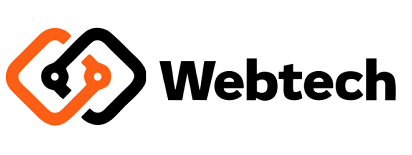Whether you’re a freelancer or a team manager overseeing projects, time tracking tools can help you navigate work just like a trusty compass. I often use tools like Toggl as a remote project manager, but I’ve sometimes looked for alternatives when its free plan felt limiting or I needed additional features. Given the number of options nowadays, I am eager to share my opinion on which alternatives to Toggl are best in 2025, along with personal touches to make your decision easier.
Why Look Beyond Toggl?
For many employees and freelancers, Toggl’s clean interface paired with a one-click timer is game-changing. Unfortunately, there is no robust invoicing feature and missing advanced project management capabilities, which makes the app not ideal for larger teams. While managing a team of designers previously, it was not enough to just have time logs—I had almost no insight into productivity, and billing was complicated at times without automated systems. Looking for alternatives taught me that there are other apps out there that offer more comprehensive reports and better savings owing to richer analytics and automation. These apps can help you:
- Track time with precision for accurate billing.
- Gain insights into productivity bottlenecks.
- Integrate with tools like Slack, Asana, or QuickBooks.
- Support individuals and large organizations simultaneously.
Best Toggl Competitors for 2025
In the search for top time tracking tools that compete with Toggl, I have considered various options based on personal trials and emerging trends, settling on these favorites for 2025.
- Controlio: Powerful with Deep Insights
Controlio’s time tracking functionalities are more advanced than timers in comparison to other applications. It features screenshots, activity tracking, and comprehensive reporting, which is great for teams that need a high level of accountability. While using it for a client project, its app usage statistics revealed how much time we were spending on Photoshop relative to email. For remote teams or freelancers needing transparent oversight, this is ideal as it integrates with payroll and project management systems. - Clockify: Affordable Collaborator
With limited budget options available, growing startups will find value in Clockify’s free plan featuring unlimited users. I introduced this tool to one of my startup friends and was impressed by how they praised the simple timesheet submissions while tracking group projects. Field teams can take advantage of GPS attendance as well, while advanced reporting sits behind a paywall. Overall, Clockify remains cost-friendly and flexible for growth, making it a solid contender for budget monitoring but requiring scalability. - Harvest: Simplified Invoicing
For freelancers, Harvest is perfect for invoicing as it converts time logs directly into invoices. I appreciate its accuracy and polished invoice designs during client billing—it makes me look competent! With mobile access and expense tracking, it is great for busy professionals. The downside? Some advanced reporting features are locked behind higher-tier subscriptions. - TimeCamp: Automation at Its Finest
TimeCamp’s automatic tracking saves the day when users forget to start their timers, reclaiming unbilled hours and preventing overworked weeks. Automating app usage analytics boosts productivity for teams with keyword-based multitasking. Strong analytics make it easy to target time sinks such as meetings or excessive calls, alleviating chronic overworking for team members. - TMetric: Collaborative and Affordable
It combines project management with tracking, making TMetric one of the most affordable tools out there with this combination of features. I actively used it on a small team project, and its task list view kept everyone aligned, which felt effortlessly organized! Its simplicity mirrors Toggl’s style but allows for budgeting and invoicing too. Though lacking a calendar view, its Trello-style integrations enable small businesses to have versatile functionality regardless of group size.
Choosing the Right Tool
All your needs matter while picking a time tracker. Controlio shines with its activity insights if you require detailed monitoring. For invoicing, Harvest is unbeatable. Budget-conscious teams should try Clockify, while TimeCamp’s automations help forgetful folks like me. Test free trials—I learned this the hard way after committing to a tool that didn’t sync well with my workflow.
Tips for Smarter Time Tracking
- Clear tasks:Label timers and set specific goals to avoid vague data.
- Review weekly:Look over reports—there are always inefficiencies to be found.
- Use integrations:Link your tracker to other tools and watch workflows blossom.
- Remain disciplined:Make tracking tasks a habit, even for small, short bursts of work.
Final Note: Your Ally in Time Savings Awaits
From my own journey using time tracking apps, switching from Toggl to the Controlio app taught me how powerful the right app can make your workday feel. Think of them as personal assistants helping you track every minute. These options are not only made for freelancers chasing after hourly rates—managers looking to sharpen streamlined teamwork will find value too. So give it a shot, find your 2025 productivity unlocker, and start experimenting!




